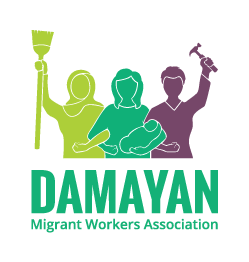Trafficking in Our Backyards: YWCA Sex & Labor Trafficking Panel
On Thursday, July 23, Damayan interns Simone and Sade attended the Sex & Labor Trafficking in New York City panel discussion and community workshop. It was sponsored by the YWCA of Queens, and the panel speakers included Mary Caparas of the New York Asian Women’s Center, Jimmy Lee of Restore, and Rita Abadi of Mount Sinai.
The event focused on educating the community about sex & labor trafficking in Queens. New York City is an extremely diverse city, but Queens is an even more diverse borough. Since it’s home to both of New York City’s airports, Queens is essentially a place for foreigners to pass through or reside. Because it has such a high volume of people, Queens is unfortunately an easier location for traffickers to hide their victims. Trafficking victims are isolated from society, yet are regularly hidden in plain sight. For instance, the busy intersection of Roosevelt Avenue and Main Street in Flushing is a major trafficking center. More often than not, the trafficker will be the victim’s only connection to the outside world. Since most trafficking victims are brought over from different countries, they usually are unfamiliar with the area that they are in, and have trouble communicating with people in the surrounding area. Language is pivotal, as a lack of language makes people vulnerable to being taken advantage of.
According to the Trafficking Victims Protection Act, people qualify as trafficking victims by 3 factors: the process, means and ends of how they arrived in the country. The first is that the person has to be harbored, transported or recruited from another location. Next, the victim has to have been obtained by force, fraud or coercion, rather than volunteered. Finally, the victim has to be in debt bondage or involuntary servitude to their trafficker.
Trafficking is an issue prevalent in areas where there is money, and conversely, where there is poverty. Poverty makes people desperate to change their socioeconomic circumstances, thus exposing them to the threat of getting involved in the sex market or getting their wages stolen. Trafficking is substantially modern day slavery, and it happens right under our noses. There are reportedly 1200 illicit massage parlors in New York City, which is more than triple the amount of Starbucks in the city. Thankfully, there is an abundance of resources for trafficking victims to utilize if they seek help. The community can help put a stop to trafficking through advocacy and by working together with NGOs to spread awareness of available services. Damayan supports this cause with its services and campaigns, especially with its “Baklas” campaign. “Baklas” means to break free, and the campaign aims to end labor trafficking and modern day slavery.
